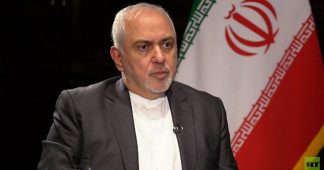After some eight years of civil conflict, the situation in Syria is basically reverting to the pre-conflict norm, writes Graham E. Fuller.
By Graham E. Fuller
October 16, 2019
Just what have we witnessed in the recent events in Syria? It’s hard to know, given the avalanche of superficial and over-the-top headlines in most U.S. media: betrayal of the Kurds, handing Syria over to Russia, caving to Turkey’s President Recep Erdogan, bestowing a gift upon Iran, allowing ISIS to once again run wild, end of U.S. leadership.
Yet the bottom line of the story is that after some eight years of civil conflict, the situation in Syria is basically reverting to the pre-conflict norm. The Syrian government is now close to re-establishing its sovereign control again over the entire country. Indeed, Syria’s sovereign control over its own country had been vigorously contested, in fact blocked, by many external interventions — mainly on the part of the U.S., Israel, Saudi Arabia, Turkey and a few European hangers-on — all hoping to exploit the early uprising against the regime of President Bashar al-Assad and overthrow it. In favor of what was never clear.
Much of this picture has a long history. The U.S. has been trying to covertly overthrow the Syrian regime off and on for some 50 years, periodically joined on occasion by Israel or Saudi Arabia or Iraq, or Turkey or the U.K. Most people assumed that when the Arab Spring broke out in Syria in 2011 that civil uprisings there too would lead to the early overthrow of another authoritarian regime. But it did not. This was in part due to Asad’s brutal put-down of rebel forces, in part because of the strong support he received from Russia, Iran and Hizballah, and in part because large numbers of Syrian elites feared that whoever might take Asad’s place — most likely one or another Jihadi group — would be far worse, more radical and chaotic than Asad’s strict but stable secular domestic rule.
Nonetheless over this entire time the U.S. has been willing to support almost any motley array of forces, including even extremist jihadi forces linked with al-Qaeda, to try to overthrow Asad. Washington has never gotten over the fact that Syria for over half a century has never bowed to U.S. or Israeli hegemony in the region, and has all along been a strong supporter of Syria’s secular —yes secular —Arab nationalism. The U.S. has therefore shown great willingness to “fight to the last Syrian” if necessary to achieve its ends.
U.S. Reaping What it Sows
As Asad’s forces gradually regained control over the country, Washington resisted those efforts — even though large numbers of Syrians want to see an end to war and destruction. In the Middle East, after all, Asad’s Syria had been by no means the worst regime alongside of Egypt, Saudi Arabia, Saddam’s Iraq, Iran and other states. If Washington disliked Asad before, it is even more angered that Asad appealed to Iran, Russia and Hizballah for support. Yet ironically, if the civil war, with its massive foreign support to the rebels, had not been so prolonged, Asad might not have needed Russian or Iranian support and presence. So we reap what we sow. And it is important to remember that Asad still represents the internationally recognized, legitimate, if often nasty and harsh, government of Syria.
As part of the anti-Asad struggle, the U.S. had sought to maintain an autonomous area for the Syrian Kurds in northern Syria along the Turkish border. The hope was that it would remain an enclave of opposition to Asad and a base of U.S. power within a divided Syria.
Which brings up the sad issue of the Kurds. What about Kurdish militia assistance in the struggle against ISIS? There is no doubt that the Syrian Kurds were effective in that struggle. But it is not as if the Syrian Kurds are the only forces that can fight the now motley dregs of the Islamic Caliphate (ISIS). Asad, Russia, Iraq and Iran all have every reason in the world to see ISIS expunged off the map — long after the U.S. and the Kurds are out of the picture. The Kurds are not essential to that picture.
Under these circumstances, I believe that President Donald Trump is justified in pulling out U.S. forces from Syria as part of an ongoing process of bringing a gradual end to Washington’s endless wars. This war no longer served any real purpose except to destabilize Syria, perpetuate its brutal civil conflict and provide an excuse to keep U.S. troops on the ground and strengthen Iranian and Russian involvement in the struggle. Its refugees have helped destabilize EU politics. In terms of Trump’s “gift to Putin,” the Russians have had a dominant foothold in Syria for many decades. So, there’s not much new here.
Whose Agenda?
It is indeed hard to keep track of the Syrian situation since there are so many players, each with its own agenda. Whose narrative you choose to identify with in this mess depends on what your agenda is in Syria.
Do you favor the Israeli agenda? Keep Syria permanently weak, divided and without allies. Do anything that will hurt Iran. Maintain Israel as the dominant Middle Eastern power.
Like Russia’s agenda? Russia is successfully working to regain its former centuries-old role in the Middle East in general — a position which briefly collapsed 20 years ago with the end of the U.S.S.R. Russia’s agenda is above all driven by its strong opposition to any further U.S. attempts at engineering regime change by coup against any and all governments globally that the U.S. does not like. Remember that U.S. intervention in Syria has not been sanctioned by international law, whereas both Russia and Iran were both formally invited to come in and assist the legally recognized Syrian government.
But there is another striking feature of Russian diplomacy: it also seeks to maintain working ties with all, repeat all, players in the Middle East including seemingly incompatible ones: good ties with Israel, Saudi Arabia, Iran, Turkey, Cyprus, Lebanon, Qatar, the UAE, Yemen, the U.S., etc. At the same time the U.S. has refused to maintain any such comprehensive working ties across the region with forces it does not like. Hence it refuses to talk with key players like Iran, Syria and Hizballah or countenance a Russian role there. That kind of U.S. posture has above all “served Putin” who has emerged as a master of regional diplomacy and compromise.
Turkey above all wants to keep the lid on all Kurdish political forces in the region that might facilitate Kurdish separatism inside Turkey — where the biggest Kurdish population in the Middle East lives. Hence the Turkish effort to invade the Syrian Kurdish enclave. The Kurds there ultimately saw the handwriting on the wall and opted to come to terms with the regime in Damascus. That moment had to come.
How do we sum up Washington’s agenda? Mixed. First, it supports almost anything Israel wants in the region. Second, it supports almost anything that will weaken and destabilize Iran, and hence anything that will weaken and destabilize Asad’s Syria. Then the U.S. supports Saudi Arabia in almost all its adventurist policies across the region and keep Yemen in bloody turmoil. The U.S. also seeks to keep ISIS at bay — but so do Syria, Russia, Iran, Iraq and Turkey. Then Washington seeks by almost every means to weaken Russia and Iran’s position in the region. It also hopes to keep Turkey “loyal” to U.S. goals in the region — a vain hope. Finally, it seeks to maintain U.S. hegemony in the Persian Gulf under the pretext of protecting the free flow of oil. Of course, all Gulf producers want to sell their oil. And Asian consumers have a far higher stake in keeping the oil flowing — India, China, Japan, Korea, Taiwan and others. So protecting those Asian shipping lanes (which has not really been necessary anyway) is most appropriately handled by them.
As for Iran, it is determined to maintain allies in Yemen, Lebanon, Iraq and Syria to the extent that it can. These allies are mainly important in a defensive operation against a concerted Israeli-Saudi-American drive to weaken Iran and all Shi’a across the region. Iran is only strong in its Shi’a identity to the extent that it is attacked for being Shi’a. So, Iran will seek to protect Shi’a populations in the region from oppression and discrimination from Sunni regimes, especially Saudi Arabia. Iran has no brief for the autonomy of any of the Kurds in the region lest it stir up Iran’s own very significant Kurdish population.
Iraq so far is a bit player, but it will gain importance with every passing year as it struggles to reestablish a viable Iraqi state after the country was decimated by the U.S. -led long war in Iraq.
The Kurds
What about the Kurds themselves, a highly complex and diverse force in the region? The Kurds are not united and may never attain unity. Kurds, after all, have been socialized within four different countries (Turkey, Iraq, Iran and Syria) where they speak three quite different languages (Turkish, Arabic and Persian). Among themselves they speak fairly distinct dialects of Kurdish in different regions. Kurds have always dreamed of independence for over 100 years (one of the biggest ethnic groups in the world without an independent state) but have been constantly thwarted by regional and international powers and have never been able to settle upon a common strategy. They have consistently been tactically exploited and utilized by outside powers for over a century (U.K. U.S., France, Israel, Iran, Turkey and Syria) when they have periodically served the geopolitical purposes of those states. They have been routinely promised support for greater Kurdish autonomy, and then, when they outlive their usefulness, they have been routinely thrown to the winds. The U.S. is only the latest state to “betray” the Kurds, by abandoning them this time — and the U.S. did the same many decades ago under Henry Kissinger who joined the Shah in using them against Saddam Hussein and then discarded them to their fate.
The Syrian Kurds had hoped that the U.S. war party in Washington would embrace their cause indefinitely. They were certainly disappointed that that has not happened, but cannot have been surprised that the U.S. would eventually decide to abandon them when the Turks, Russians and Syrians all decided to put an end to their autonomous enclave in the name of a unified Syrian state.
Ultimately Kurdish-Turkish rapprochement within Turkey is far from an impossible task, but it will take some time. There is a groundwork from the past to be built upon. And once relations with Turkey’s own Kurds inside Turkey have been regularized, Turkey will likely be far more relaxed about the Syrian Kurds, who in any case will need to settle on an arrangement for some kind of modest local status in Syria. Turkey after all came to accept an autonomous Kurdish zone in Iraq and has deep economic relations with it.
The most vociferous voices in Washington for sticking by the Kurds in Syria come from several sources. First, from those who reflexively oppose any policy of Trump under any circumstances anywhere. Second, those interventionists who seek to maintain U.S. armed presence in the region at almost all costs — and the untiring U.S. global task in their eyes is never finished. Third, there are many who want to keep Israel strategically happy and empowered.
The interventionist crowd in Washington wants the U.S. in Syria indefinitely as proof of our “credibility” to fight everybody’s war, and maintain American “leadership” — read hegemony — in the region. Sadly, the prolonged war agenda would not seem to do anybody in the region any good, including the U.S.
* Graham E. Fuller is a former senior CIA official, author of numerous books on the Muslim world; his first novel is “Breaking Faith: A novel of espionage and an American’s crisis of conscience in Pakistan;” his second novel is “BEAR—a novel of eco-violence in the Canadian Northwest” (Amazon, Kindle) grahamefuller.com.
This article is from grahamefuller.com.
Published at https://consortiumnews.com/2019/10/16/everybody-betraying-everybody-in-syria/











